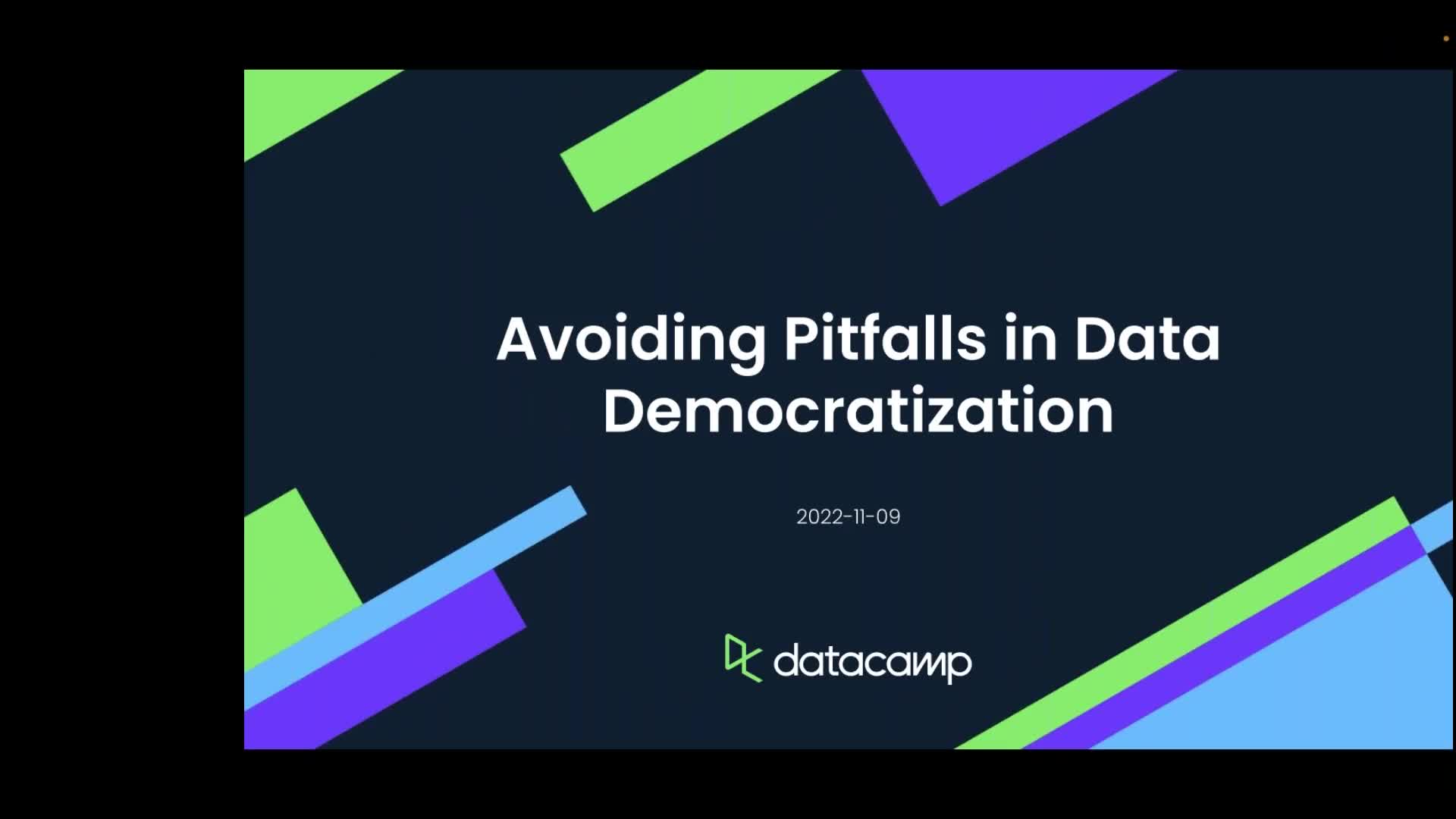Accéder au contenu principalPour les entreprises





Haut-parleurs


Jorge Vasquez
Director of Analytics at DataCamp
Formation de 2 personnes ou plus ?
Donnez à votre équipe l’accès à la bibliothèque DataCamp complète, avec des rapports centralisés, des missions, des projets et bien plus encoreConnexe
white paper
The L&D Guide to Data Literacy
Find the appropriate distribution of data skills across your organization.webinar
Democratizing Data Science at Your Company
Data science isn't just for data scientists. It's for everyone at your company.webinar
Democratizing Data in Government Agencies
Get specific, actionable best practices for data democratization in government.webinar
Fostering Confidence with Data Across Your Organization
Learn how to empower your entire organization with data literacy.webinar
Democratizing Data with Power BI
Discover how Power BI can accelerate an organization’s data culturewebinar
Data Skills to Future-Proof Your Organization
Discover how to develop data skills at scale across your organization.Join 5000+ companies and 80% of the Fortune 1000 who use DataCamp to upskill their teams.
Loved by thousands of companies
